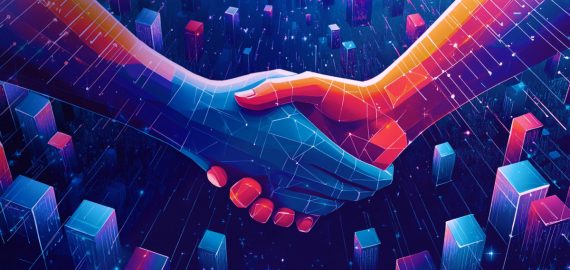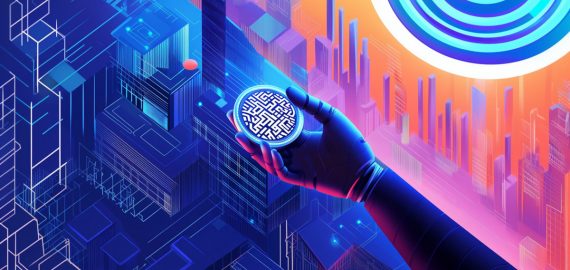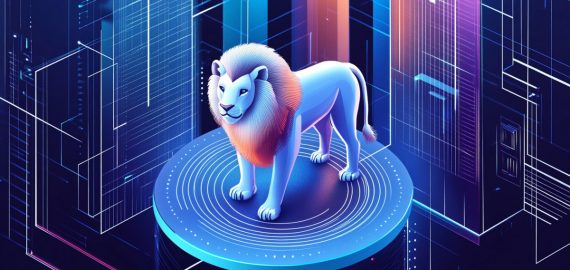Exploring AI Revolution In Web3: Decentralized AI, Data Ownership, And The Road Ahead


In Brief
One of the discussions at the Hack Seasons Conference in Dubai explored how the AI wave is reshaping blockchain development and user interaction, with a focus on the rise of autonomous agents, AI-powered dApps, and advancements in security and data analysis.

On May 2nd, Dubai hosted the Hack Seasons Conference, where leading experts gathered to explore how the AI wave is reshaping blockchain development and user interaction. Led by Tomer Sharoni, Co-Founder and CEO of Addressable, the panel featured industry leaders including Evgeny Ponomarev from Fluence Network, Mark Rydon from Aethir, Ramkumar from Openledger, and Michael Heinrich from 0G Labs. The discussion covered the rise of autonomous agents, AI-powered decentralized applications (dApps), and advancements in security and data analysis, highlighting how AI is transforming Web3 infrastructure and governance, and examining the future frontiers of this convergence.
One of the central questions was the current dominance of centralized AI models, which rely on closed data, closed compute resources, and restricted incentives. Speakers identified decentralization as a means to overcome these limitations.
Identifying key issues in AI today, they highlighted that Web3 can contribute to AI development by enabling more inclusive data collection and labeling processes. The ability to collect many resources and enable people to use what they need is another problem requiring attention. Verifiability across AI components also brings challenges, as well as lack of rewarding people for the data they provide. Crypto-native incentives in this case serve as the potential opportunity to reward contributors transparently. Meanwhile, a key infrastructure challenge is limited access to GPUs, the critical engines of AI, which emphasises the urgency of democratizing compute access to ensure broader participation.
Decentralized Infrastructure As Path To Transparent, Verifiable, And Trustworthy AI Systems
Restoring trust in AI systems is another essential problem, particularly in a landscape where decisions are increasingly opaque. Decentralization therefore brings visibility to both data and model behavior.
Decentralized storage layers, for example, can establish data provenance from the moment information enters the system, allowing users to trace its origin and modifications. On the operational side, real-time model alignment through blockchain-based incentive and penalty mechanisms—such as slashing—offers a path to dynamic governance of AI behavior, creating systems that are both verifiable and adaptable.
Unlocking AI’s Next Frontier: Ownership In Decentralized AI Models
Another major point of discussion was data attribution and quality assurance. While most large language models (LLMs) today are trained on publicly scraped data, panelists emphasized that the most valuable datasets are held by individuals and enterprises with domain-specific knowledge.
Openledger, for example, aims to enable individuals and organizations to build tailored models for sectors like healthcare and e-commerce by tapping into these specialized datasets. Their framework allows contributors to retain ownership over their data while receiving attribution and rewards. Notably, Openledger provides a mechanism to trace which data contributed to specific AI outputs, a level of transparency not available in most current LLMs.
From Automating On-Chain Transactions To Powering Crypto-Native Economies: What Lies Ahead?
When asked about the most interesting ideas in the AI space expected to materialize in the near future, speakers highlighted the potential of using AI agents to perform a wide range of human tasks. One example discussed was AI alignment nodes, which are capable of acting as a natural police force by detecting data poisoning and backdoor attacks. Furthermore, panelists emphasized the role of AI in abstracting humans from routine work and enhancing efficiency.
Speakers projected that within the next three to five years, a large share of on-chain transactions could be executed by autonomous AI agents—an especially relevant development for the cryptocurrency space, which is characterized by fast speculation and trading.
Another notable idea is that AI could be used to optimize everything from software development to decentralized finance (DeFi) strategies. As AI continues to evolve, there is increasing potential for entirely new crypto-native organizations and financial models, powered by algorithms written and optimized by AI itself. In this emerging paradigm, cryptocurrencies may serve not only as tools for speculation but also as native capital for the AI-driven economy.
Disclaimer
In line with the Trust Project guidelines, please note that the information provided on this page is not intended to be and should not be interpreted as legal, tax, investment, financial, or any other form of advice. It is important to only invest what you can afford to lose and to seek independent financial advice if you have any doubts. For further information, we suggest referring to the terms and conditions as well as the help and support pages provided by the issuer or advertiser. MetaversePost is committed to accurate, unbiased reporting, but market conditions are subject to change without notice.
About The Author
Alisa, a dedicated journalist at the MPost, specializes in cryptocurrency, zero-knowledge proofs, investments, and the expansive realm of Web3. With a keen eye for emerging trends and technologies, she delivers comprehensive coverage to inform and engage readers in the ever-evolving landscape of digital finance.
More articles

Alisa, a dedicated journalist at the MPost, specializes in cryptocurrency, zero-knowledge proofs, investments, and the expansive realm of Web3. With a keen eye for emerging trends and technologies, she delivers comprehensive coverage to inform and engage readers in the ever-evolving landscape of digital finance.



















































